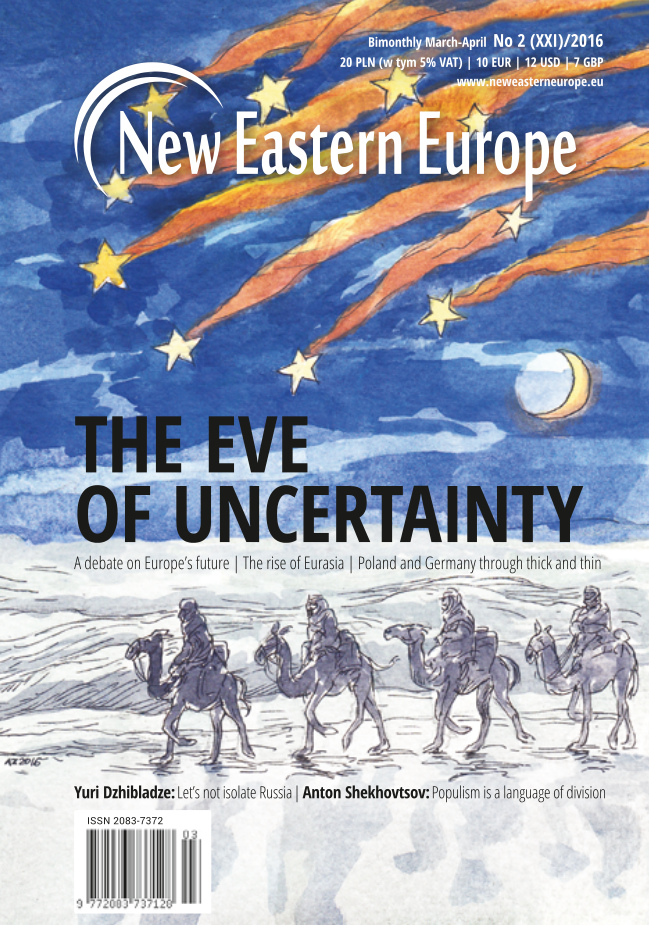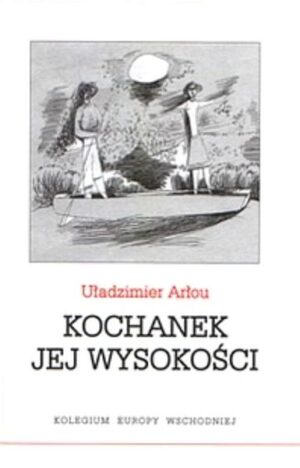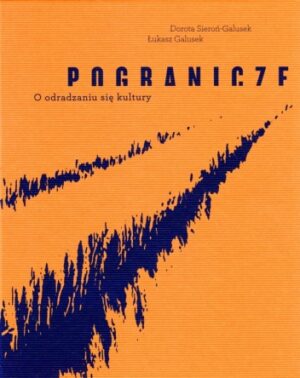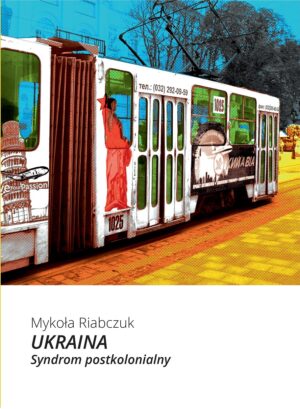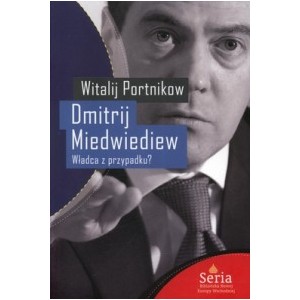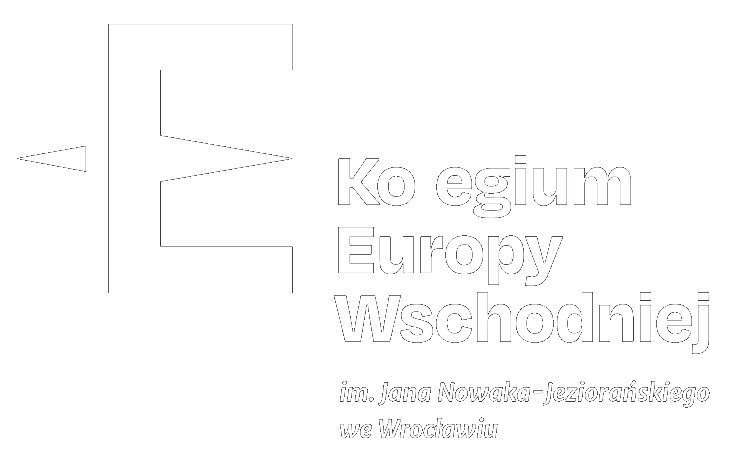Description
How much control does today’s Europe have over its own future?
This is the main question we pose in the March-April 2016 issue of New Eastern Europe. In light of the refugee crisis, risk of a British exit from the Europe Union, Russian aggression in Ukraine, the threat of terrorism and the war in Syria, all of which are connected, it is clear that the old continent is at a historic moment of extreme uncertainty. In addition, this year Poland and Germany are celebrating the 25th anniversary of the signing of the Treaty of Good Neighbourship and Friendly Co-operation. A special section of the issue digs deep into the significant impact this treaty has had in shaping the new Europe.
WHAT’S INSIDE
A Debate on the Future of Europe
featuring Tomas Venclova, Aslı Erdoğan, Luiza Bialasiewicz, Samuel Abrahám, Natalia Sniadanko, Matthew Kott and María Do Mar Castro Varela.
The return of Eurasia?
Bruno Maçães
Are we entering a historical period when the supercontinent of Eurasia will make a comeback?
A new Eurasian paradigm
Adam Balcer
The concept of the “post-Soviet space” is becoming obsolete.
A brief history of “Orbanisation”
János Széky
As international organisations tend to neglect the institutional quality of democracies almost completely, the Victor Orbán government in Hungary has been able to successfully argue that everything they do is perfectly legal.
Seeking the truth in Nemtsov’s assassination
Vadim Prokhorov and Anastasia Sergeeva
The official investigation into the death of Boris Nemtsov has concluded that it was an assassination, however all attempts are being made to bury any links to Ramzan Kadyrov and the Kremlin and only prosecute the assassins who carried out the crime. Yet, the evidence shows that justice should be found beyond the perpetrators.
DOUBLETAKE: A revival of nation state ideology
Anton Shekhovtsov
The future of the European Union as a political project is at risk. Yet the rise of far right and far left parties in Europe is only one factor eroding the EU.
Tilting at windmills. The debate on terrorism in Europe
Wojciech Michnik
Terrorism is not the only threat facing Europe and emphasis needs to be placed on the perils connected to an overestimation of the terrorism debate.
Resolving borders and building bridges
Basil Kerski
When we think back to June 1991, we see great value in the treaty between Poland and Germany. It was a new beginning in relations between the two states. Yet, the treaty was more than bilateral, but it was also a building bloc in the construction of a new Europe, without which there would be no united Germany, NATO or the European Union.
A partnership on trial
Wolfgang Templin
The last 25 years of the German-Polish partnership have been marked by both positive and negative developments. It seems that once again, this partnership is being put to the test.
The future of Ukraine is the future of Europe
Yaroslav Hrytsak
The stakes in Polish-Ukrainian relations always were, and indeed continue to be, about more than just Poland and Ukraine.
An interview with Yuri Dzhibladze
“For me it extremely frustrating to hear statements that Russians are not ready for democracy. In my view the worst thing that could happen would be if the democratic community of nations gave up on Russia.”
Russian truckers take it to the streets
Arseniy Vesnin
After the imposition of a new road tax aimed at truck drivers, protests broke out around Russia, culminating in the establishment of a protest camp outside Moscow.




